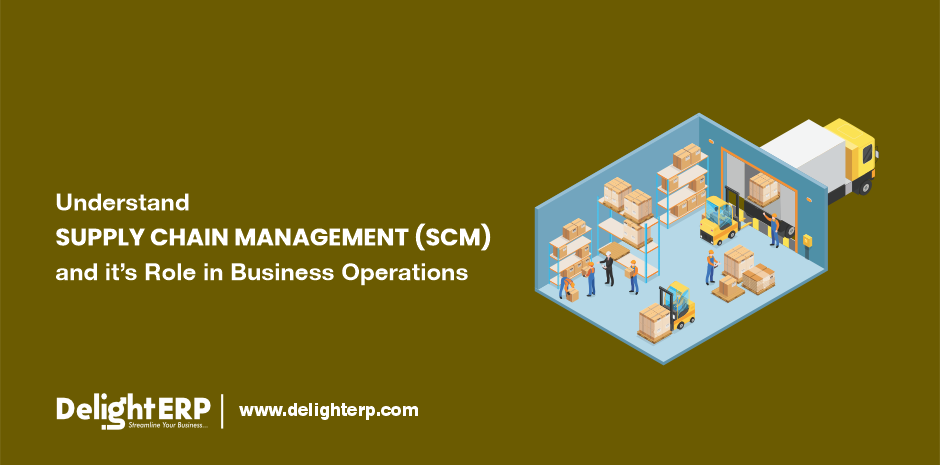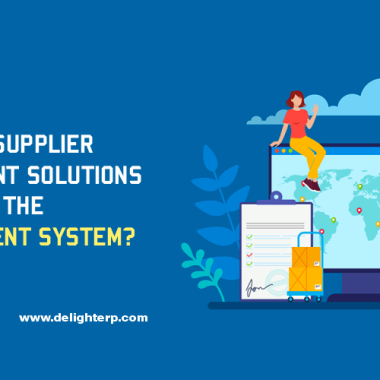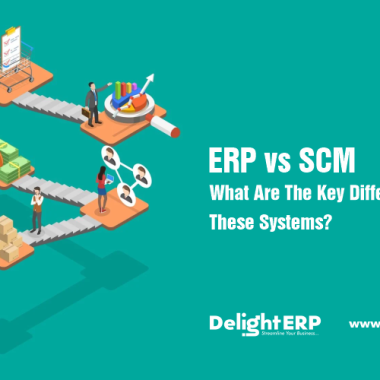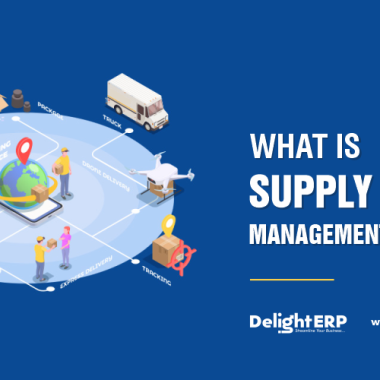What is Supply Chain Management?
Supply chain management (SCM) is the activities required to plan, control, and execute the flow of products and services from raw material suppliers to end customers. It involves coordinating and integrating the key business processes among different organizations. Like, suppliers, manufacturers, distributors, retailers, and transportation providers. They deliver products and services to customers efficiently and cost-effectively.
Effective supply chain management aims to streamline the flow of goods, information, and finances across the entire supply chain network. Further, they involve demand forecasting, inventory management, transportation planning, etc.. However, they integrate various systems and processes to ensure timely delivery, cost optimization, and customer satisfaction.
By leveraging technology, data analytics, and collaborative practices. Moreover, supply chain management enables businesses to respond quickly to changing market conditions, and reduce waste. Effectively it is improved responsiveness, cost savings, and enhanced customer service.
Process of supply chain management:
1. Planning and Forecasting:
This stage involves analyzing customer demand, sales trends, and market conditions. Businesses use this information to forecast future raw materials, components, and finished product needs. Further, Production plans, inventory levels, and budgets are created based on these forecasts.
2. Sourcing and Procurement:
Suppliers are based on various criteria such as quality, price, and reliability, followed by negotiations to establish favorable terms. On the other hand, procurement encompasses the operational activities of purchasing goods or services from selected suppliers. Further, they include issuing purchase orders, managing supplier relationships, receiving and inspecting goods, and facilitating payments. Moreover, it will manage supplier relationships to ensure reliable and timely deliveries.
3. Production and Manufacturing:
Transforming raw materials and components into finished products according to the production plan. This stage may involve scheduling production runs, managing inventory within the production facility, and ensuring quality control.
4. Inventory Management:
In the supply chain, inventory management acts as the control center, balancing the flow of goods. It involves forecasting demand, maintaining optimal stock levels to avoid shortages or overstocking, and strategically placing inventory throughout the chain. This ensures timely deliveries, reduces storage costs, and keeps the entire operation running smoothly
5. Delivery and Logistics:
Delivery and logistics is the gap between production and the customer’s hands. This involves planning, coordinating, and executing the physical movement of products. Where, choosing the best transportation method, managing warehouses, and ensuring on-time delivery – to get them from the factory to the final destination efficiently and cost-effectively.
6. Returns and After-Sales Service:
Returns and after-sales service form the final link, ensuring customer satisfaction by handling product returns, exchanges, repairs, and warranty claims. Moreover, this stage also provides valuable data to improve product quality and identify areas for better efficiency throughout the entire supply chain.

How to supply chain management process with ERP Software:
ERP software integrates data from different departments and functions, including procurement, manufacturing, inventory management, logistics, and distribution, into a single database. This centralized data repository ensures real-time visibility and transparency throughout the supply chain, enabling better decision-making and coordination among various stakeholders.
Through advanced planning and scheduling modules, ERP systems can optimize production schedules, material requirements planning (MRP), and capacity planning based on demand forecasts and customer orders. This streamlines the flow of materials and ensures timely delivery of finished goods.
Inventory management capabilities in ERP software help maintain optimal stock levels, track inventory movements, and minimize excess or obsolete inventory, reducing carrying costs and improving efficiency. Additionally, ERP systems facilitate procurement processes by automating purchase orders, managing supplier relationships, and monitoring delivery schedules.
The logistics and transportation modules in ERP software enable efficient management of inbound and outbound logistics, route optimization, shipment tracking, and integration with third-party logistics providers. This ensures timely and cost-effective delivery of goods to customers.
Furthermore, ERP systems provide comprehensive reporting and analytics tools, enabling organizations to monitor key performance indicators (KPIs), identify bottlenecks, and continuously improve supply chain processes based on data-driven insights.
By integrating and automating various supply chain processes, ERP software enhances collaboration, reduces manual errors, and improves overall efficiency, responsiveness, and customer satisfaction throughout the supply chain management process.
What is the role of supply chain management in business operations?
Supply chain management (SCM) plays a vital role in business operations by overseeing the flow of goods and services from the initial supplier to the final customer. It’s the backbone of getting products or services into the hands of those who need them. Here’s how SCM impacts businesses:
1. Efficiency and Cost Reduction:
Efficient supply chain management (SCM) acts as a powerhouse for businesses. By streamlining processes, optimizing inventory levels, and fostering strong supplier relationships. However, SCM reduces waste, minimizes errors, and secures better pricing. Further, that will increase the translates to faster deliveries, happier customers, and significant cost savings that boost overall business operations
2. Improved Customer Satisfaction:
In business operations, SCM directly impacts customer satisfaction. By optimizing processes like inventory management and delivery, SCM ensures products are delivered on time and in good condition. Additionally, efficient returns handling builds trust and reduces frustrations. Ultimately, a well-managed supply chain translates to happy customers who are more likely to return and recommend your business.
3. Increased Visibility and Control:
You gain transparency into inventory levels, production status, and deliveries, allowing for informed decisions. Ultimately, it empowers businesses to optimize efficiency, reduce costs, and deliver a superior customer experience.
4. Competitive Advantage:
Businesses can adapt to market changes and customer demands more effectively with a flexible supply chain. This will help operations free up resources for research and development, leading to new product offerings.
Conclusion
In short, a well-managed supply chain is the engine that keeps businesses running smoothly and efficiently. It allows them to deliver value to customers, reduce costs, and gain a competitive in the market. By streamlining processes, optimizing inventory, and fostering collaboration, SCM empowers businesses to deliver value faster in the strong market.
Delight ERP can integrate your Supply Chain Management process with the ERP Software. Further, you can get a free demo for the understanding.





